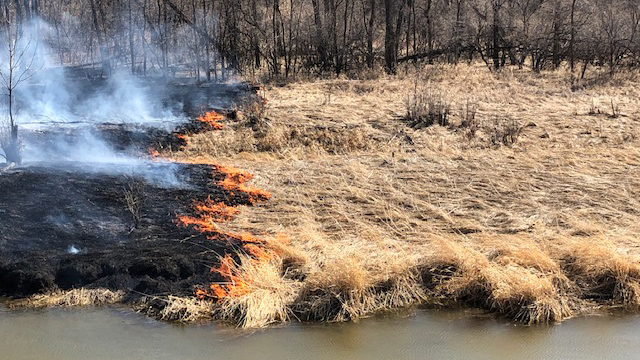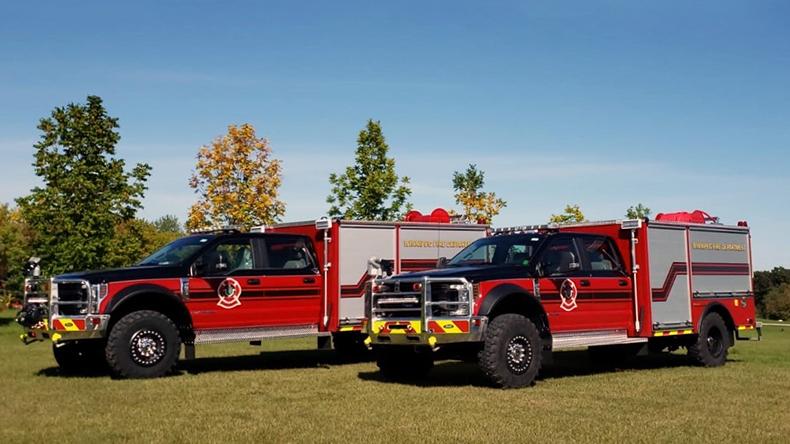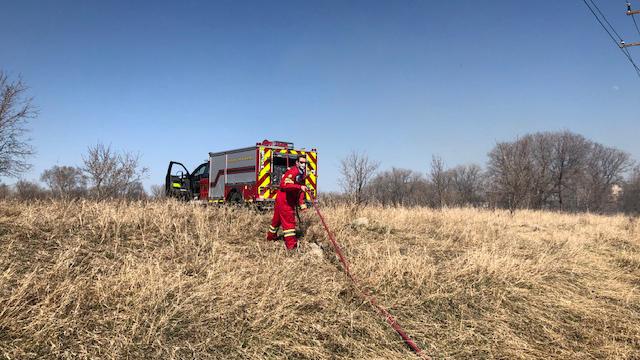
The weather is warming up and this often means more wildland and grass fires.
The Winnipeg Fire Paramedic Service (WFPS) battled more than 300 wildland fires last year. These fires can damage green spaces and property. Plus, it takes more firefighters to extinguish them and to protect nearby properties.
In 2020, the WFPS added two new wildland fire vehicles to help battle fires.
Wildland fires are different than structure fires. They can spread over a large area of land, making them difficult to fight.
Nicknamed the Bison, the WFPS vehicles are built for wildland areas. Bisons have pump-and-roll capabilities, so crews can pump water from a mounted turret while inside the cab. This offers more protection for firefighters while allowing them to add water to a fire more quickly.
“These units are designed for wildland fires. They are higher off the ground with military grade tires so they can travel on wild terrain. This is critical when fighting wildland fires,” said Wilkinson.
The vehicles are part of the Wildland Response program. It includes a Wildland Fire Emergency Response Unit trailer, a tow vehicle, and an all-terrain vehicle (ATV).
These tools help firefighters put out wildland fires, but you can help prevent them.
“Wildfires can start in a grassy area and spread to nearby homes or structures when the fire throws off sparks or embers,” said Doug Sinclair, Public Education Coordinator.
You should keep burn barrels as far from structures and trees as possible, and always ensure the barrel is vented and screened. You also need a permit.
Remember to keep firewood piles away from homes or structures. And even if you have a permit, you are not allowed to have an open-air fire if wind speeds or gusts are higher than 25 km/h.
Never throw cigarettes out car windows or while walking on outdoor paths because they can smolder and start a fire.
May 2 is Wildfire Community Awareness Day. It's a good time to start thinking about wildfire prevention in your own neighbourhood.
“Remember to have a home escape plan and practice it often so your family can safely escape in the event of a fire. Make sure you have working smoke alarms in your home, and test them monthly,” said Sinclair.
If you see a wildfire or a grass fire, call 911.
Additional safety tips for homeowners can be found in the Government of Manitoba’s FireSmart Manual.
Originally posted on May 1, 2020


